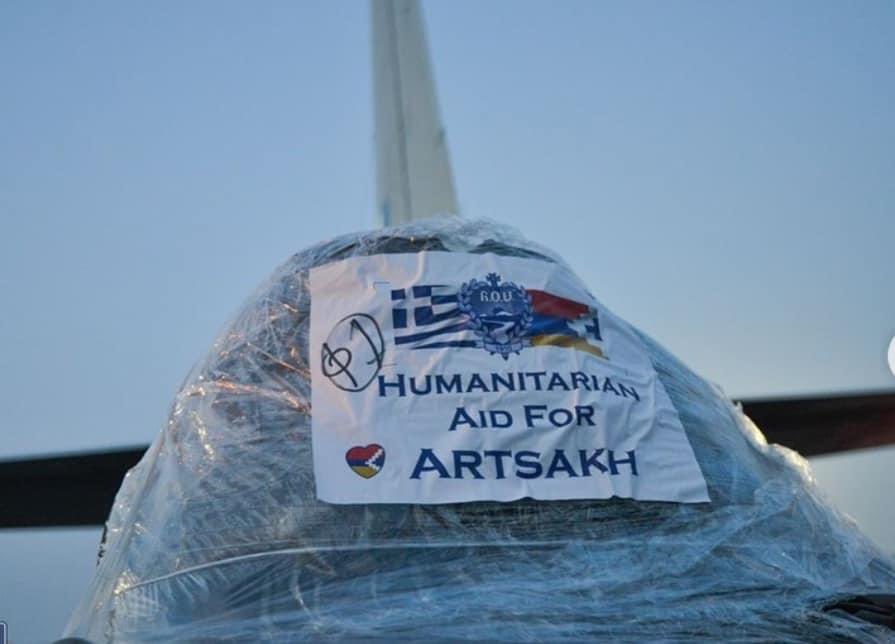By Harut Sassounian
Publisher, The California Courier
Just when you think you have come across every oddity in Armenia, someone will surprise you with a brand new one. Let me warn you that this problem has nothing to do with internal politics. It has to do with incompetent, careless, and sometimes, corrupt officials whose unacceptable conduct has been going on for over 30 years in Armenia.
Last week, I received an email from Kevork Yazedjian, a scholar and activist in Armenia. He described his frustration and anger at an objectionable incident that he had just experienced. He addressed his email to PM Nikol Pashinyan, the head of the State Income Committee and the High Commissioner of Diaspora Affairs of Armenia. Yazedjian sent copies of his email to hundreds of Armenians in and out of Armenia to alert them and seek their intervention.
The problem started on June 27 when Yazedjian, along with his sister and her husband, went to the State Income Committee’s office to pick up Armenian books sent from the United States by Vahakn Kupelian who had shipped 78 copies of his mother’s, Siran Seza’s (1903-1973), two novels: Shattered Lives (2015) and Book of Genesis (2019). Kupelian had asked Yazedjian to donate the books to libraries throughout Armenia and Artsakh. When the government official Mr. Sahakyan noticed multiple copies of the two books, he became suspicious that Yazedjian was going to sell them. Sahakyan wrote a memo to the customs officers at the Yerevan airport, asking them to evaluate the price of these books and charge Yazedjian the corresponding import duty.
At the customs office, Yazedjian was shocked when five officials, after consulting with each other, told him that copies of the two novels will be sent to the National Security Service (NSS) to inspect their contents! Yazedjian wondered if censorship of books was part of the duties of the NSS. He was concerned that by the time NSS employees finished reading the two novels, he could be asked to pay a large amount for storage fees. Disgusted by this violation of free speech in a “democratic country,” Yazedjian told the customs officials that they can have the books.
After he sent several letters of protest to various officials, Yazedjian received on June 30 an unexpected phone call from Sahakyan, who asked him to come over so he could give him the books. When he arrived at the office the next day, Sahakyan was not there, but his boss received Yazedjian with utmost courtesy, saying that he had received many complaints about this case which had embarrassed him in front of the whole world. The chief customs officer also claimed that his office had sent several pages of the novels to the NSS, asking them to review them urgently. The NSS had supposedly replied that there are no national security issues in the two novels.
Given this frustrating experience and his serious interest in Armenian literature, Yazedjian has come up with a new proposal, asking the government to facilitate the transfer of Armenian books and periodicals to Armenia through diplomatic pouch by Armenia’s embassies and consulates overseas.
There is a second more shocking example of gross negligence by Armenian officials which had serious medical and diplomatic repercussions.
After the Artsakh War of 2020, on Dec. 12, 2020 and January 9, 2021, the Armenian Relief Society (ARS) of Greece collected urgently needed humanitarian aid which was flown to Armenia by two Greek military planes. A small part of the cargo was released shortly after its arrival and distributed by the ARS. More than a year later, however, it was discovered that the bulk of the aid was still at the customs’ warehouse at the Yerevan Airport. After several letters of complaint which had remained unanswered, Armenia’s recently-appointed Ambassador to Greece, Tigran Mkrtchyan, responded on June 28, 2022, with troubling news: while the ARS humanitarian aid was finally cleared from customs, “due to the expiration of the items [medicines], part of the cargo had to be destroyed.”
Amb. Mkrtchyan was answering the Greek Armenian community’s letters sent to Pashinyan and other officials on December 14, 2020 and February 7, 2022.
The urgently dispatched medicines were supposed to save the lives of Armenian soldiers wounded during the 2020 war. Who will be held responsible for the loss of the lives of the soldiers who were deprived of these medicines? Furthermore, has the Armenian government sent a letter of apology to the Greek government for the lengthy delay in releasing and destroying urgently flown medicines to Armenia? Greece may not be as responsive next time there is a medical emergency in Armenia. Besides Armenia’s utter negligence in clearing the cargo, the ARS did not even get a reply to its two letters until 18 months later!
This is a prime example of gross negligence. Regrettably, no Armenian official was held responsible for this scandalous behavior, and no one was dismissed! No good deed goes unpunished in Armenia!




